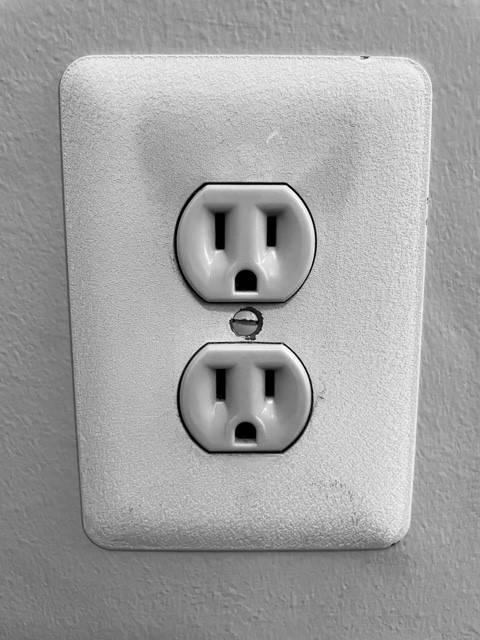By: George Nemphos, Co-Founder and Managing Member
This is the time of year you come across well-meaning platitudes and inspirational prose as people make their New Year’s resolutions. Half the time (maybe more) those plans to eat healthier, exercise daily and save money are thrown out the window by Feb. 1. With all the uncertainty in the world around us, with a pandemic still lingering, and with change as the only constant we can trust, the New Year’s fresh start is also an opportunity to be realistic and be smart. As a lawyer, here’s some advice on what you should resolve NOT to do in the coming year, including actual examples where people have made these mistakes before, so you don’t have to.
1. Don’t fall for the too-good-to-be-true trap
Many clients have come to us after the ink has dried, only to discover a bad aftertaste. We pride ourselves on the value we bring as attorneys. You hire our collective experience; we’ll tell you the real ins and outs, do the due diligence and find the skeletons in the closet — like that sweater that looked good on you …10 years ago.

One of our clients came to us to try and salvage part of a company they were selling — having realized a bit too late in the process that they’d signed over too much equity and were now staring at the possibility of bankruptcy. Those early investment checks looked really good. Don’t let those extra zeros blind you because in a couple years that sweater is going to be full of moth holes and it’s not going to fit. There are always options to consider, like offers from independent sponsors and debt management, and pitfalls to avoid, like tax implications and potential loss of equity. Raising capital? Deals that sound too good to be true are very much like that sweater or shirt in the discount bin — they don’t belong in your closet.
2. Don’t pretend to be an electrician if you’re not an electrician
Sometimes being honest that you don’t really know the answer is a good thing. One of my clients said pretty blatantly when he first came to us, “I don’t know (bleep) about (bleep).” And from that, a great relationship grew — because he was honest. He didn’t waste time. He wasn’t pretending to be a lawyer.

Got an electrical problem? Don’t just screw in a few faceplates and hope that fixes your non-working outlets. You need an experienced electrician to check the inner wiring and an expert who knows how to do it without being electrocuted. Lean on the experts, listen to their advice and seek input on the stuff you don’t know.
3. Don’t oversimplify all the “ings” (hiring, filing and signing)
Yep, we told you not to do that. “We downloaded a form off the internet” are famous last words we’ve heard more than once. True, sometimes things can be simple … If everyone gets along and sees eye-to-eye and agrees on all the operating details. So in other words, rarely is anything pertaining to a business deal actually simple.
Legalese can start to make things seem more complicated than they are, leading some business owners to head straight for the “self-checkout” lane. The reality is that having a lawyer offers the benefits of an express lane, with expertise and experience.
Especially for entrepreneurs, there’s an ambition, a drive and a “figure-it-outiveness” that often leads early-stage founders to seek out turnkey solutions on things like employment, contracts, agreements, taxes and other ancillary needs outside their core business. When a CEO of a technology company hired a contractor to assist with software development, they neglected to cover off on specific non-disclosure agreements (NDAs) and other work-for-hire details. The developer then ended up owning the intellectual property related to the software. Hiring, filing and signing — all the “ings” really — require thought, time and a little “look-into-itiveness” to get it right.
4. Don’t neglect your most prized possessions
It’s all about intellectual property (IP). That same technology company ran into other challenges by not protecting their IP. Failing to file the correct documentation meant that another company used their logo, replicated the software and made their money. Copyrights, trademarks and patents require patience and paperwork, and are worth it to protect what’s most valuable. Like insuring Bruce Springsteen’s voice, Betty Grable’s legs, or even the tongue of the one-and-only Gene Simmons, you gotta protect what’s yours.

You can also go the route that Coca-Cola famously has taken by keeping the recipe for their beloved soda a trade secret. Especially in an age where everything can be quickly shared and explode virally like a TikTok video, it’s important to be highly “sus” (I’m told that’s short for suspect, as the kids say in Among Us) about your IP getting into the wrong hands. Not sure what counts as your IP? When in doubt, lock it up.
5. Don’t overcommit
You CAN do it all. You just don’t have to do it all at once. Marketing your new company? You don’t have to purchase every paid media tactic to start. Have dozens of new product ideas to build upon your first successful one? Research your target market and prioritize. This just might be the hardest one of them all. When we’re passionate about our business, feeling the adrenaline of a win, and firing on all cylinders, it’s electric.
Remember the electrician analogy? Be careful not to get electrocuted and get burnt out. Some of our serial-entrepreneur clients seem to have an innate skill of taking one opportunity at a time, maximizing it, and knowing when to sell or exit. (Often it’s that they can’t sit still or ever truly retire.) One of our long-tenured clients has formed and sold multiple industrial corporations, building upon previous successes. He exudes a certain calm in knowing the current company is just a part of his journey and he has a road ahead of him to explore. Maybe those New Year’s platitudes aren’t all wrong — be a little Zen and enjoy the present.
What if we fast forward to Feb. 1 and you’ve already done one or more of the don’ts above? Don’t dwell on it. Fail fast, learn and march on. There’s so much more not to do in the future.
Read this article and more in the Baltimore Business Journal’s Maryland Inno section, dedicated to entrepreneurs.




